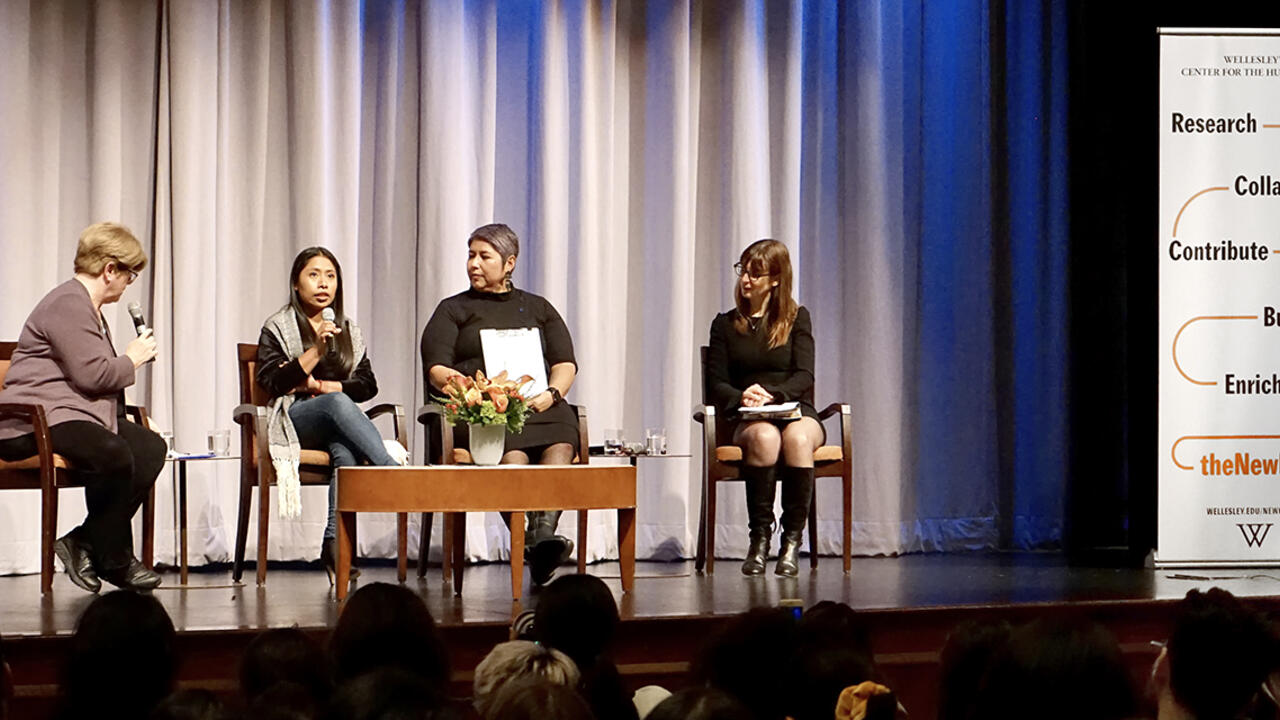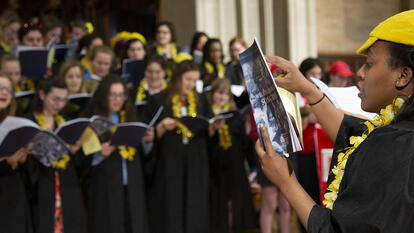“Roma” Star and Activist Visits Wellesley

Yalitza Aparicio, whose acting debut as the star of the 2018 movie Roma launched her from the primary school classroom to the Oscars red carpet, sat down with two Wellesley professors for a conversation on November 12.
Aparicio, who is from the state of Oaxaca, Mexico, has no formal acting training, and she auditioned for the film at her sister’s insistence while studying to be a teacher. That turned out to be good advice—Aparicio’s performance earned her a whole host of accolades, including a nomination for a best actress Oscar. She wasted no time in using her new platform to advocate for the rights of women, indigenous people, and domestic workers like the one she played in Roma.
In “An Evening with Yalitza Aparicio,” organized by the Newhouse Center for the Humanities, Aparicio spoke to a packed Alumnae Hall through a translator, senior lecturer in Spanish, Nancy Hall. Irene Mata, Barbara Morris Caspersen Associate Professor of Humanities and associate professor of women’s and gender studies, and Codruţa Morari, associate professor of cinema and media studies and French, asked Aparicio to reflect on the film—which scenes were the hardest, which are the most memorable—and to explain how she brought her character to life and to the present. They also discussed diversity in Mexican cinema and the importance of bringing underrepresented groups into the spotlight.
Aparicio shared that she stopped watching TV as a child because she didn’t see herself represented on-screen. Now that she’s an activist, which happened by accident, she strives to show other indigenous women that they, too, have a place in front of the camera. Aparicio passed on her mother’s advice: “Ocuparse, no preocuparse,” or “don’t worry, take charge.” With that mantra in mind, she continues to fight for indigenous rights, gender equality, and environmental justice.
Eve Zimmerman, director of the Newhouse Center for the Humanities, was eager to bring Aparicio to campus after she saw Roma last year. “Roma bridges past and present, old and new, the local and the global, daily ritual and singular, violent disruptions,” she noted ahead of the Newhouse event. “Since her appearance in Roma, Yalitza Aparicio has also bridged different worlds, speaking out tirelessly and courageously for the cause of human dignity.”
Ninotska Love DS ’20, who helped promote the event on campus, described Aparicio’s impact: “Yalitza’s activism is breaking barriers for indigenous and Latinx communities all around the world by creating visibility and allowing these individuals to share their narratives without tokenizing their stories.”
Photo caption: Actress Yalitza Aparicio joins members of the Wellesley faculty on stage at Alumnae Hall for a public interview organized by the Newhouse Center for the Humanities.



